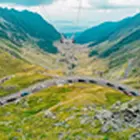In two weeks, the public will vote on whether to expand highways in particularly busy sections, such as around Geneva, Bern, Basel, St. Gallen, and Schaffhausen. The state costs are estimated at nearly 5 billion francs. The question of whether this investment can be financed solely from the National Road Fund (NAF) is currently the subject of intense debate. Obviously, even among government circles, there is no agreement. SVP's Transport Minister, Albert Rösti, wished to emphasize in the voting information, citing the Freedom of Information Act, that the highway expansion could be feasible without new taxes, as reported by 'Schweiz am Wochenende.' In contrast, FDP's Finance Minister, Karin Keller-Sutter, corrected this claim by omitting the 'without new or additional taxes' part from the voting documents. Documents in the possession of the editorial staff also report on this. In the Federal Council's 2022 report, it was still believed that NAF reserves would decrease to the extent that a fuel price increase could become necessary by 2027. If these fall below 500 million francs, politics will need to increase the mineral oil tax by 4 cents per liter. 'This could be misleading,' Albert Rösti repeatedly emphasized in recent weeks that there is no connection between the expansion project and the fuel price increase. He assured both in the interview for '20 Minuten' and on SRF 'Arena' that no increase in fuel tax is necessary for the six expansion projects.
Now in an interview with 'Schweiz am Wochenende,' he spoke about the division between the finance and transport ministries. He stated that by changing priorities, the fuel price increase can be avoided, and he expects the road fund situation to improve by 2030, since from then on, electric vehicles will also be taxed. Besides, according to Rösti, it is not surprising that the finance ministry is striving for higher revenues. Due to the geopolitical situation, fuel prices fluctuate anyway, in other words: 'Even if the proposal is rejected, fuel prices could rise.' Jon Pult, an SP national councilor and expansion opponent, is outraged: 'The more they spend, the greater the risk of underfunding. Rösti tries to obscure and deny this.' He finds it annoying and unfair that it took weeks, even pressure, for the public to learn that there is indeed a connection between highway expansion and fuel prices. 'This shows how non-transparent they work.' Furthermore, according to Pult, the expansion project's costs are expected to exceed 5 billion francs, 'we are expecting at least another billion more.' It is evident that fuel will become more expensive, which will primarily affect rural residents who rely on cars, while city dwellers oppose the expansion due to increased traffic. 'Electioneering before the vote,' Philipp Kutter, a centrist national councilor, considers the debate classic electioneering in the last phase before the vote. There are numerous reasons why fuel prices could rise, he says, the most important of which is the rise of electric cars over traditional engines. He is confident that this structural financing problem can be solved by 2030, with broad consensus in support. 'In any case, it's an oversimplified approach to claim that the National Road Fund would be put in a tough spot because of the planned expansion. This is just part of the electoral struggle. Now they're trying to scare car owners.'









